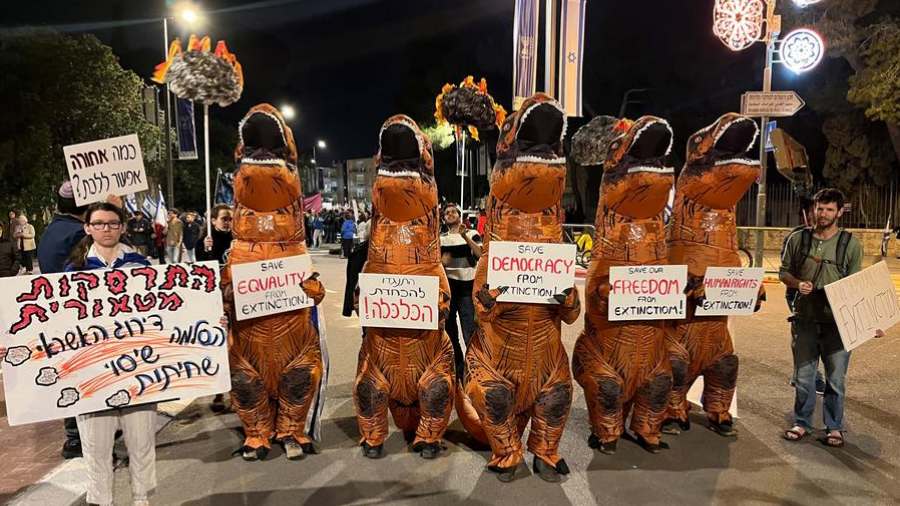Every Saturday evening, Yehudit Elkana joins thousands of protesters to demonstrate against the judicial overhaul plans by the far-right government.
"I am a very optimistic person by nature, but nowadays I'm very pessimistic but we are not going to give in," Elkana, a retired physical chemist and human rights activist, told DW.
Over the past four months, the gap in society between opponents and supporters of the controversial plan has been widening. The former say the overhaul would threaten Israel's democracy, while the latter say it is necessary to curb what they describe as an overly powerful Supreme Court.
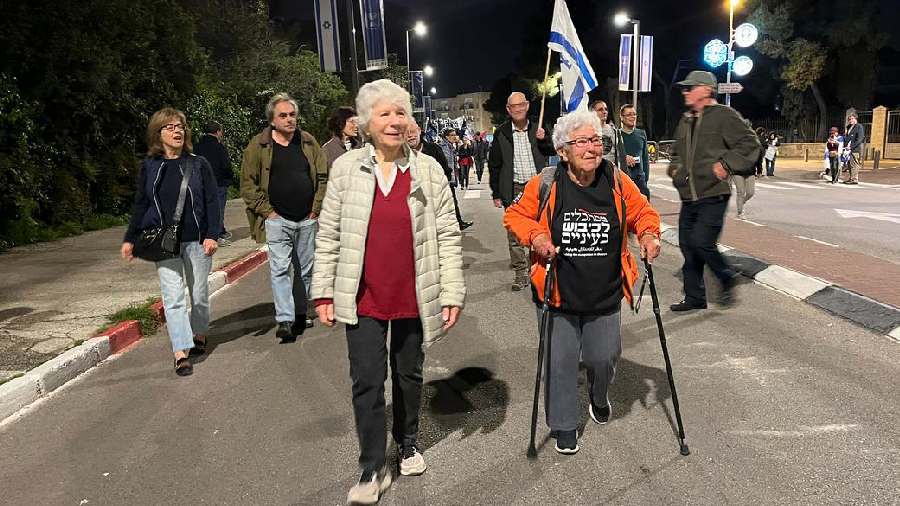
Yehudit Elkana on the left, at a demonstration against the judicial overhaul in Jerusalem in April Deutsche Welle
Elkana, who was born in 1935 in Jerusalem, belongs to the generation that built Israel. Her parents left Nazi Germany in the early 1930s and started a new life in what was then British Mandatory Palestine. Over her lifetime, she has experienced many crises and wars but also moments of joy such as when David Ben Gurion proclaimed the state of Israel on May 14, 1948, in Tel Aviv.
"I remember the pictures that I saw in the newspapers, in Sderot Rothschild at that time, and the happiness, the dancing," she said, referencing one of Tel Aviv's main boulevards. But today, as Israel is about to celebrate its 75th anniversary, she is deeply worried about its future. The dispute over the judicial overhaul "might lead to a civil war. Because no side will give in. It‘s very sad."
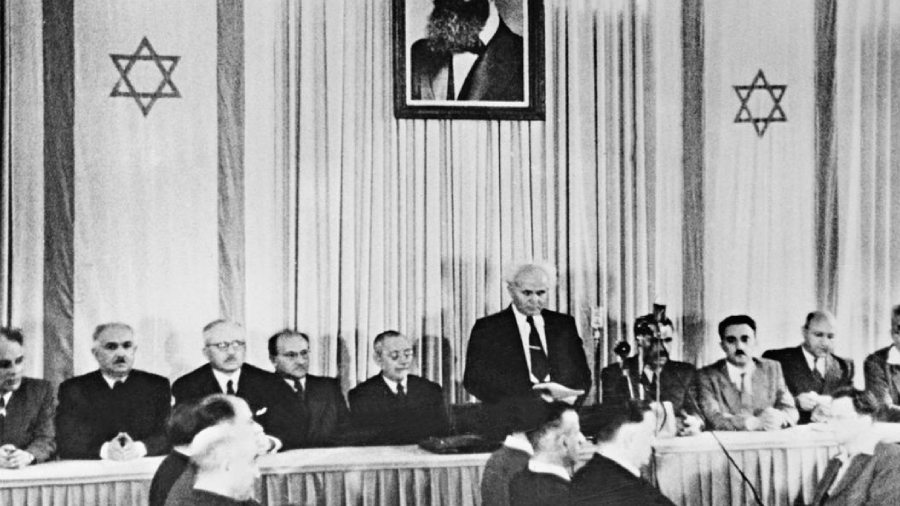
David Ben Gurion reads out the Declaration of Independence in Tel Aviv in 1948 Deutsche Welle
Israel seems to be "at the crossroads," said Tomer Persico, a research fellow at the Shalom Hartman Institute, a Jerusalem-based research and education center and not only because of the controversial overhaul plans.
"Different issues that have been suppressed or ignored for a long time are now coming up to the surface: Israel's liberal/illiberal public sphere, the relationship between religion and state, which is, of course, connected and the relationship between the secular majority and the ultra-Orthodox minority [serving] in army service. All these things are now being debated," said Persico. A majority of young ultra-Orthodox do not serve in the army.
The left-wing perspective
In a cafe in Tel Aviv-Jaffa, Roni Amir, 24, a student and activist, talks to her friend Nili Rozen, 23, about the current protests and Israel's near future. Amir said it is important for her to go to the weekly demonstrations against the judicial overhaul. But her priority is to see an end to the occupation of the Palestinian Territories, and "equality for all."
"In the demonstration, I am in the anti-occupation block, which calls for the freedom and equality for the Palestinian people, and for everyone. Our focus is on the occupation, which we believe is the base for everything that is happening now, and we want true democracy for everyone, we want a country that is free for everyone, not based on nationality or religion."
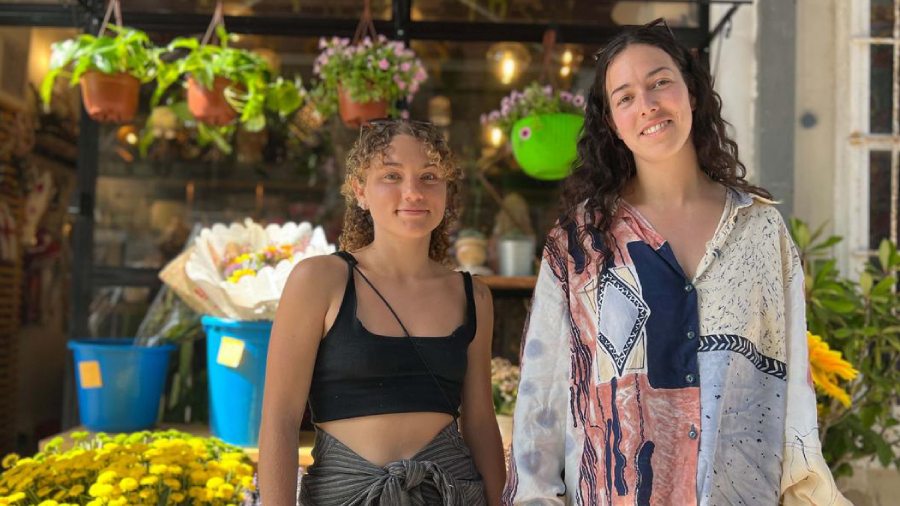
Nili and Roni are worried about the proposed judicial overhaul Deutsche Welle
In the future, they hope to see the concept of a one-state solution in which Palestinians would become equal citizens and can move freely within the country.
Both say that Israel today focuses too much on security to the neglect of other important issues such as education or the high cost of living.
"We are always busy dealing with security; feeling like the victim in this big thing that is the Middle East," said Amir. The current atmosphere also weighs on their mind. "Even being an activist, trying to help the Palestinian people, you are treated as a traitor of your country," said Roni. "Instead of saying we are doing something good to help others."
Roni's and Nili's take on the Israeli-Palestinian conflict is not a popular one, at least not among the majority of young Jewish Israelis who didn't experience the peace process of the 1990s, when the Oslo Peace Accords gave way to the hope that Palestinians and Israelis were on a path to a two-state solution.
The problem, said Persico, is that the left in Israel has little ideological clout. "Certainly the struggle to put an end to the occupation that once was headed by groups like Shalom Achshav (the NGO Peace Now) is a lot weaker today. There is a sort of a consensus today in Israel that there's really nothing to do right now about it. There's no real partner on the other side."
Some of those young Israelis grew up during the second Palestinian intifada (uprising) from 2000 to 2005. And the unilateral disengagement from the Gaza Strip in 2005, when Israel dismantled its settlements, is often used as example among the political right to demonstrate that conceding territory resulted in the militant Islamist group Hamas taking over the territory and in rocket attacks on Israeli towns.
According to the 2022 Israeli Democracy Index, an annual study by the Israel Democracy Institute, a non-partisan Israeli think tank, up to 75% of Israeli Jews aged 18 to 34 identify as right-wing — a trend, the report said, that has developed over the last decade.
In addition, young people increasingly identify as being religious, or are being born into ultra-Orthodox families which tend to be more conservative.
That was in part reflected in the last national elections, when the far-right party alliance Religious Zionism — which has since split up — gained 14 seats out of the 120 Knesset seats. Their extremist leaders are now ministers in the coalition government led by Prime Minister Benjamin Netanyahu.
"They are very ideologically committed. They set out a very explicit goal for themselves. And that sort of decisiveness is very attractive to young people who don't find it in other places," said Persico.
The right-wing perspective
Naor Meningher is disappointed with the demonstrations and hopes that at least parts of the judicial reform will be implemented.
"We just had an election four months ago. The results are undeniable. It's a government that enjoys a very clear mandate from the people to act," said the 34-year-old podcaster and social commentator, who lives in Tel Aviv.
The most pressing issue for his generation, he said, is to abolish the idea of a "welfare nation" and "the remains of socialism that still hang in this country as a residue from the years past," adding that "I think if they went on the streets for that, they would actually find a lot of allies on the right."
As for the Palestinian-Israeli conflict, his position is clear. "I think the best foreseeable circumstance is some kind of a status quo like we have now, where we annex everything that we can annex that is not highly populated," said Meningher, referring to the occupied West Bank. Settlements in the Israeli-occupied West Bank are classified by the International Court of Justice and the United Nations as illegal under international law.
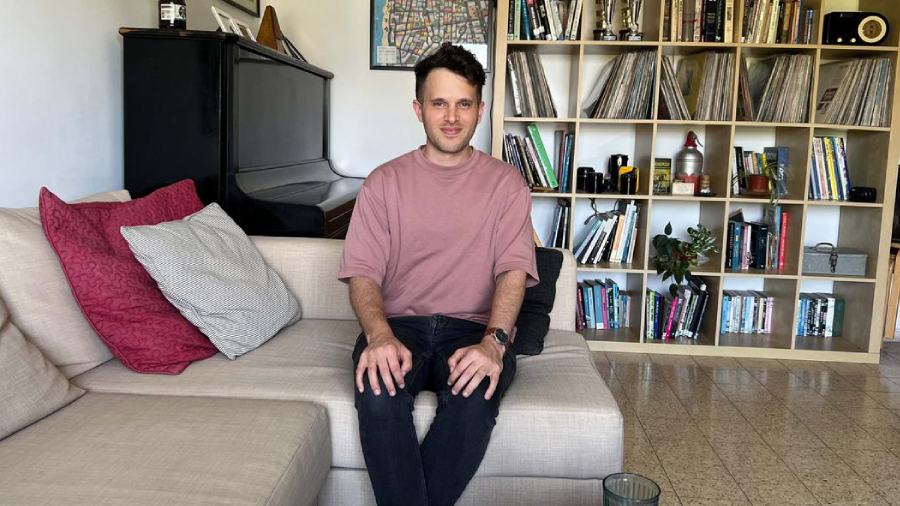
Naor Meningher hopes that at least parts of the judicial reform will be implemented Deutsche Welle
"Palestinians in Gaza and in Judea and Samaria [occupied West Bank] generally speaking, are my enemies. So I have zero interest for them to have a sovereign state," he said.
For him, Israel remains the only country where Jews can feel safe. "My grandparents came from Romania in the 1970s. They fled from a ruthless dictatorship, a communist dictatorship, and found refuge here. I don't think Jews have any other alternative. So, to me, it's just my home forever."
Back at the demonstration, Yehudit Elkana is with a group of people from the "anti-occupation block."
"Immediately after 1967, I went to the Old City," she recalls, which until then was under Jordanian control. "But already then it was clear to me that the whole of the West Bank should be returned, this was a conquered area that should be returned." Israel captured and occupied the territory from Jordan in the Six-Day War in 1967.
While the focus is now on the judicial overhaul, she is also relying on the younger generation to find solutions to the challenges. "We have to remain optimistic despite the pessimism. We have to do whatever we can."

